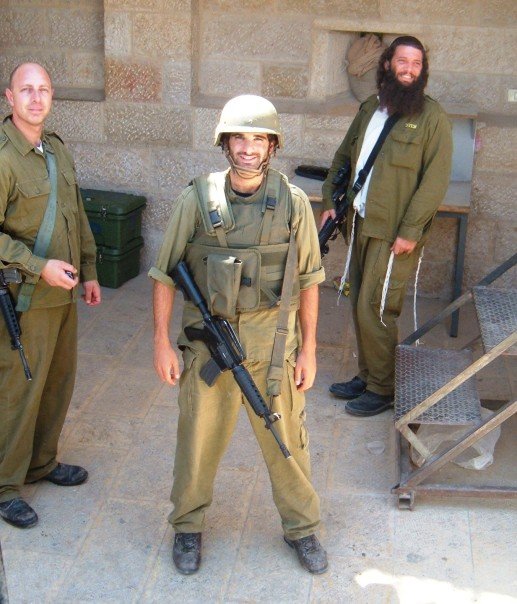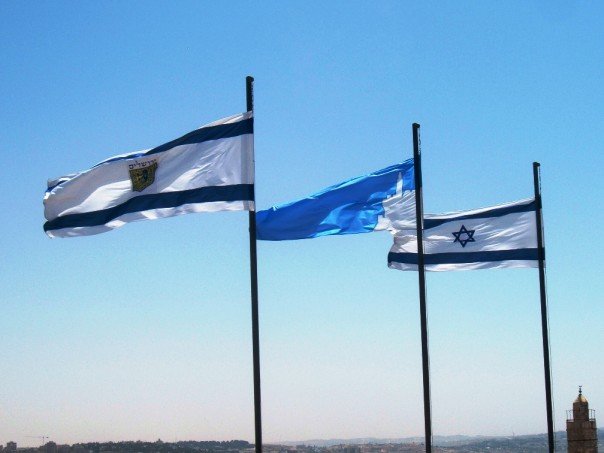Idan Raichel: ANZAC Day, Memorial Day, and Yom HaZikaron
Today is ANZAC Day here in Australia. This is the day when we honor the fallen soldiers who gave their lives defending the amazing country of Australia. It is the Australian equivalent of the US Memorial Day, although in Australia the shops are closed (yes, even the major grocery stores), rather than having big sales. People spend the day with family, visiting farms, having picnics, going to concerts.
With Yom HaZikaron just a few short weeks ago, my remembrance of our fallen Jewish soldiers is fresh in my mind. In America, Memorial Day has sadly become commercialized. Every store puts American flags on its advertisements… seemingly trying to convince you that American soldiers have died (and are still dying) for your right to buy an Italian leather couch, a new SUV. Where is the true gratitude?
Even here in Australia, ANZAC Day is different from Yom HaZikaron. True, in Australia, fallen soldiers seem truly to be honored. I have seen graffiti painted on walls reminding us of ANZAC, reminding us of the lost soldiers. When graffiti artists see this as the message they want to tag on walls, you know you have a country that honors its soldiers. The shops are closed in reverence. And yet, something is different.
I think the difference is that Yom HaZikaron is personal, for ALL of us. I would venture to say that nearly every Jew in Israel knows or has known or met a soldier who died defending the country. Thank G-d, given the number of attacks, the death toll is remarkably small. G-d is with us, always. Yet, it is a small country. If one person from a moshav or a yishuv dies in combat, the entire town will feel the loss.
Even more, we Jews are more than just a country, a nation. We are a family. If you found out that you had a cousin you’d never met who was just killed in combat, you would feel the loss. Now I will never get to know him/her. Blood ties run thick. Family, at the core of our Jewish values, connects us. And all of us Jews are family. It is the reason we welcome traveling Jews to our Shabbos table every week, or the reason we let Jews without a place to sleep stay in our home. We don’t need to know them. They are family. If your long lost uncle showed up at your door with nowhere to go, would you shut him out? Your cousin? Your brother or sister? Of course not!
And that is why on Yom HaZikaron, we feel the loss so deeply. Wouldn’t it be beautiful if every person in every country could feel this way for the soldiers who have died defending them? If we could all tap into that sensation that we are all of one family? In the eyes of G-d, in the teachings of Judaism, every life – every life, not just Jewish lives – is sacred. If one life is lost, it is a loss to the world, and a loss to each and every one of us.
In parting, I will leave you with this letter from famous Israeli musician Idan Raichel. He speaks about his experience of Memorial Day versus Yom HaZikaron… and I hope that, on this ANZAC Day and every day of commemoration, his words will give us pause.
Hello, Its me, Idan,
writing this morning from Tel Aviv: Exactly a year ago, I was sitting with friends in Atlanta, Georgia, and telling them why, in Israel, stores and shopping malls don’t have Memorial Day sales.
I tried to explain to them how, unlike in America, Memorial Day is filled with such deep sorrow that it’s not a day for shopping trips or picnics in the park. I told them how every Memorial Day, my mother rides her bicycle from our house to the cemetery for fallen soldiers in Kfar Sava to visit the graves of two of her high school friends who never lived to be 21. She’s been making that trip every year for over 40 years.
I tried to explain to my friends in Atlanta about the minute of silence on Memorial Day eve, and the two minutes the next morning, during which the whole country stands still. They refuse to believe that an entire country completely freezes for a moment of remembrance − they try to imagine the sight, and to them it sounds like a scene from a movie.
I tried to explain to them how in just one moment as Memorial Day ends, like the moment that ends Shabbat and begins the new week, we transition from mourning to the happiest day of the year. We emerge from our great sadness, and while giving thanks to those who made it possible for us to be here, we begin Independence Day, and fireworks light up our beloved country.
I tried to explain how our great joy, a joy that doesn’t know left or right, rich or poor, native-born citizens or new immigrants, is about one thing − celebrating the fact that we are here. We are here in this crazy country of ours, where there’s always breaking news, where everything is tense and seems to be always teetering on the edge, but also where we have everything, old and new: Just a 15-minute drive away from the spot which housed the First Temple, built to praise God, where the Western Wall now stands, someone is filming the Big Brother reality TV show, complete with celebrity contestants.
We have sacred and secular here: We have old and new, Hebrew and Arabic, Russian and Amharic, Moroccan and Yemenite and more. In this country we live and celebrate independence, and democracy. We celebrate with old-fashioned sing-a-longs on kibbutzim, and trance parties in the desert. Happiness floods this country of ours, which after all is barely a dot on the world map, but makes a great deal of noise − as only we know how. Every Independence Day in Israel, throughout the country, everyone takes to the streets for celebrations that could hold their own against those of any country in the world.
I miss the days when I would go with my parents and siblings to the main square in Kfar Sava to join in the celebration. To my regret, but also to my great joy, I’ve been a performing musician from the age of 12 and since then, I’ve only experienced Independence Day from the other side − up on the big stage, facing a sea of people, tens of thousands in every city. In those huge crowds there are native Israelis together with new immigrants from every corner of the world. Big crowds weren’t something one used to see very often in the Middle East − not until the past two years.
On this Independence Day, I think about the people who have taken to the streets recently: in our country, in Egypt, in Syria, and many others. Millions of people who want not only to survive today, but to dream about what is possible tomorrow. People who are looking for new meaning in their independence, or trying to return independence to its original meaning.
Independence, and great hope.
Yours,
Idan Raichel
Read more on Yom HaZikaron: A Prayer for Israeli Soldiers
Read More










